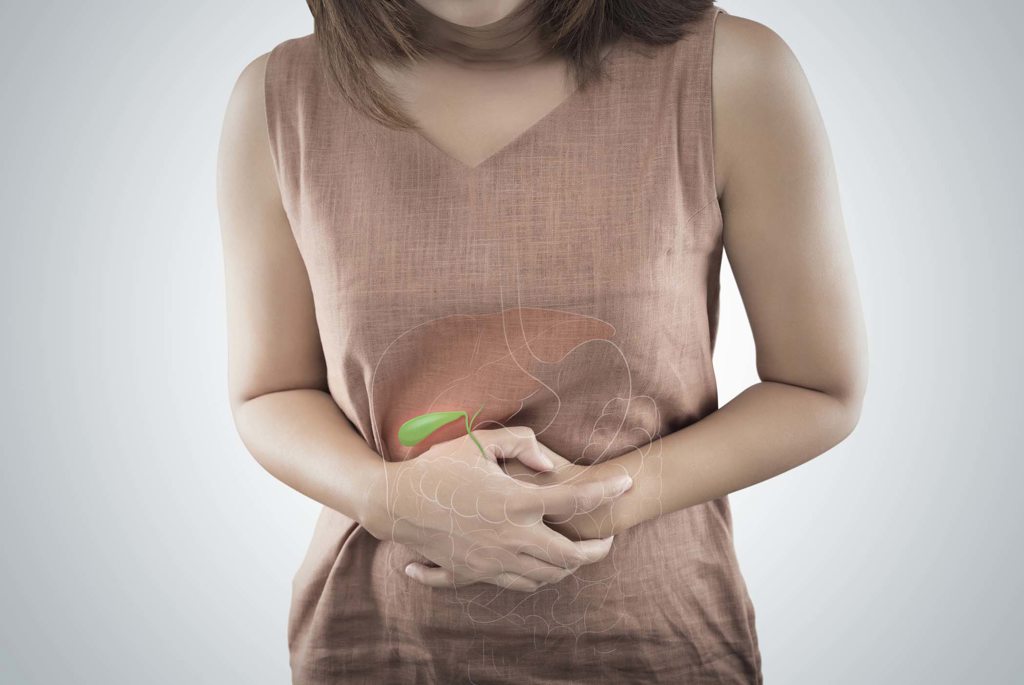How to Keep Your Gallbladder Healthy

When was the last time you thought about your gallbladder? We are constantly reminded to pay attention to our cholesterol levels, our heart health and our risk for cancer. But we do not hear much about another vital part of the human body, the gallbladder.
The gallbladder is a small organ located in the upper right part of your abdomen, just beneath the liver. It is part of the digestive system, and its main function is storing and releasing bile, a digestive fluid that helps break down and digest fats.
“When you begin to eat, the gallbladder receives a signal to release stored bile through the biliary tract,” said Taylor Grimm, CRNP, a certified registered nurse practitioner at Penn Highlands Gastroenterology. “The bile passes through the common bile duct and into the duodenum, where it mixes with food and aids the digestion process.”
We often do not pay attention to the gallbladder until there is a problem, such as gallstones, blockages or infections. Approximately 10% to 20% of Americans will develop gallstones at some point in their lives, and they can be painful and lead to serious problems.
Fortunately, research suggests that there are steps you can take to keep your gallbladder healthy and functioning properly.
Eat more fruits and vegetables
Plant-based foods are filled with vitamins, minerals and antioxidants that provide the body with the nutrients it needs to stay healthy. Vitamin C, vitamin E, folic acid and magnesium have been shown to help prevent gallstones and may lower the risk of other gallbladder problems. Kiwi, broccoli, citrus fruits and leafy greens are great options.
Antioxidants help the body rid itself of free radicals, which are toxic molecules that develop because of natural processes and environmental stresses. When free radicals accumulate in the body, it can cause oxidative stress, which causes cell damage that may lead to gallbladder and other diseases.
Fruits and vegetables are also high in water and fiber, which help keep the gallbladder working smoothly. And because they contain little to no fat, they do not strain the gallbladder either.
Choose lean proteins
“You have probably heard of saturated fat and unsaturated fat,” said Ms. Grimm. “Saturated fat is the bad one, and it is the fat that is present in red meat, processed meats and full-fat dairy. Saturated fat raises bad cholesterol, which may increase the risk of developing gallstones.”
Opt for foods with unsaturated fats, such as fish, nuts, avocados and olive oil. These healthy fats prompt your gallbladder to empty and prevent the accumulation of bile that causes gallstones.
Enjoy the occasional cup of coffee
Many of the foods we love the most are among the worst for our health. But you do not have to sacrifice everything to maintain a well-balanced diet.
Coffee, for example, may help protect gallbladder function. Research suggests that substances in coffee can balance certain chemicals, stimulate the action of the gallbladder and possibly improve intestinal activity. Moderation is key to coffee consumption.
Making dietary changes is never easy, but following these recommendations can help improve the health of your gallbladder, as well as your overall health and wellness. Always talk to your primary care provider before making changes in your diet.
Penn Highlands Gastroenterology specializes in diagnosing and treating diseases of the gallbladder, esophagus, stomach, small intestine, colon and rectum, pancreas, bile ducts and liver. The gastrointestinal specialists at Penn Highlands use advanced testing procedures, such as endoscopy and endoscopic ultrasound, to diagnose the source of your digestive tract problems and start you on treatment to help manage the problem and control symptoms. To learn more, visit www.phhealthcare.org/gi.

